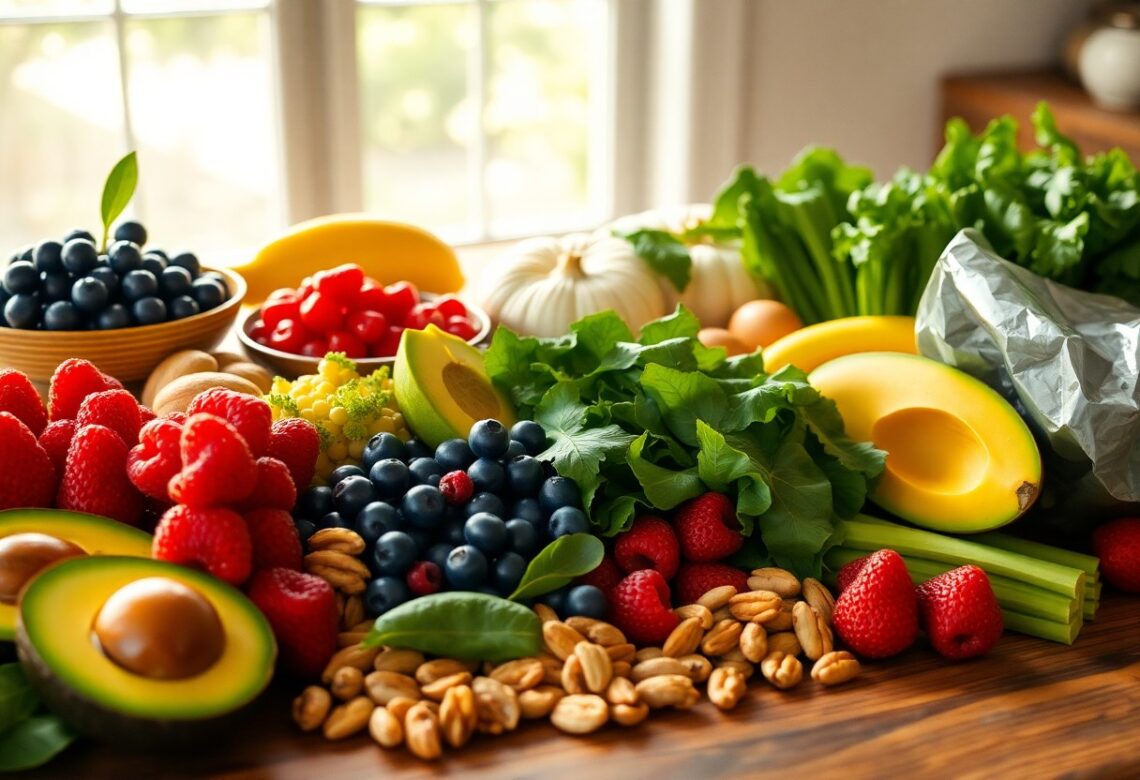There’s a wealth of information surrounding fat burning foods, and understanding the science behind them can empower your dietary choices. You may wonder which foods can truly boost your metabolism and support your weight loss journey. This blog post will explore into the evidence-based truth about various foods that claim to help burn fat, arming you with knowledge to enhance your nutritional strategy and improve your overall health. Get ready to explore the effectiveness of these so-called fat-burning foods and how they can fit into your lifestyle.
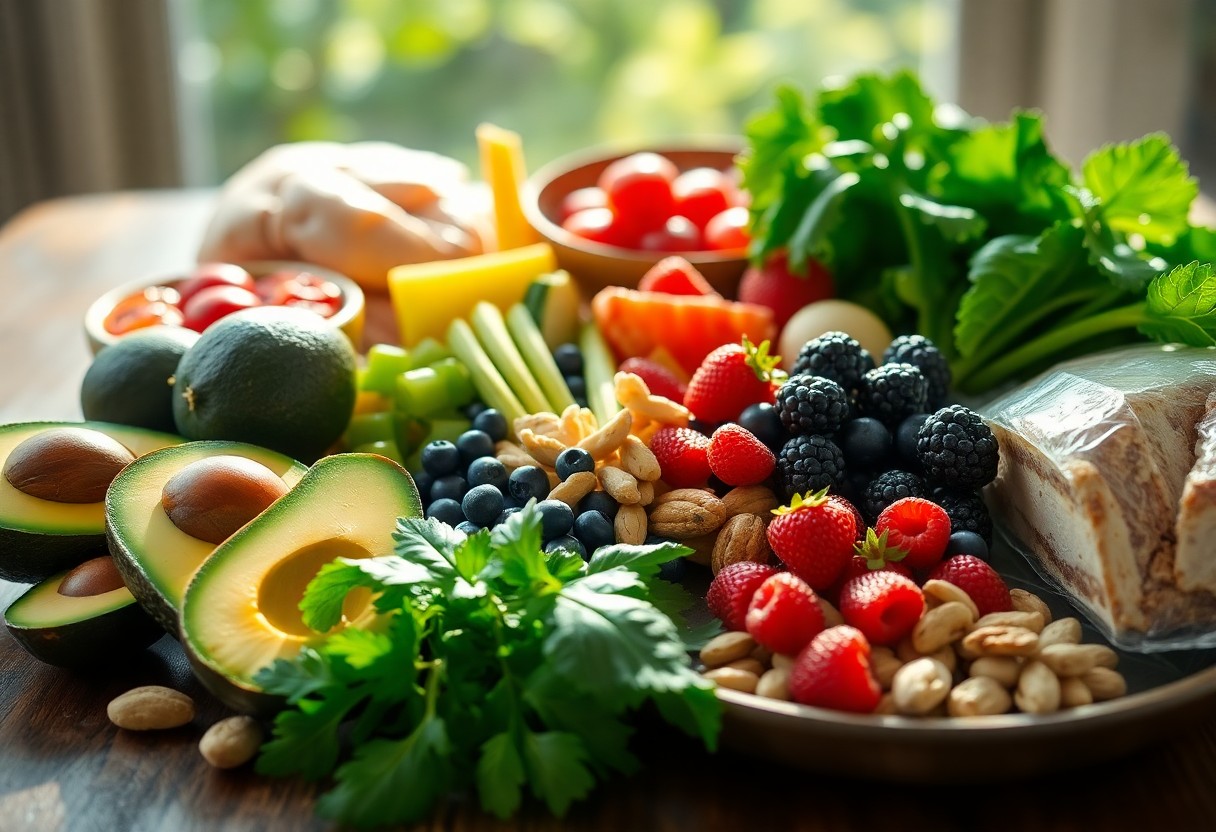
Key Takeaways:
- Metabolism Boosting: Certain foods like green tea and protein-rich items can enhance your metabolic rate, aiding in fat burning.
- Healthy Fats: Foods such as avocados and nuts provide healthy fats that can promote fat loss while supporting heart health.
- Fiber-Rich Foods: High-fiber options, including fruits, vegetables, and whole grains, help with digestion and keep you feeling full longer.
- Hydration: Drinking adequate water can enhance metabolic processes and may help the body burn fat more efficiently.
- Whole Foods: Minimally processed foods tend to be more effective in promoting fat loss compared to highly processed options.
- Spicy Foods: Ingredients like chili peppers can temporarily boost metabolism and increase fat oxidation due to compounds like capsaicin.
- Consistent Eating Habits: Maintaining regular meal patterns and including fat-burning foods can contribute to overall weight management success.
Understanding Fat Burning Foods
For many individuals seeking effective weight management, understanding fat burning foods can significantly impact your results. These foods are believed to enhance your metabolism, promote fat oxidation, and contribute to your overall wellness. Incorporating such foods into your diet can provide you with a strategic advantage on your journey towards achieving healthy body composition and maintaining energy levels.
Definition and Importance
With the right knowledge of fat burning foods, you can make informed dietary choices that support your metabolism and aid in weight loss. These foods, rich in nutrients and vitamins, offer more than just calorie reduction; they also fuel your body for optimal performance. By prioritizing these foods in your diet, you can enhance your fat-burning potential and foster healthier eating habits.
Common Misconceptions
Beside misconceptions about specific foods, there’s a common belief that certain items alone can magically melt away fat. Many people think consuming “fat burning” foods in excess will lead to instant results, neglecting the importance of a balanced diet and overall calorie management.
Definition of fat burning foods often leads to confusion, as many wrongly assume these include quick-fix items or supplements. In reality, the power of fat burning foods lies in their nutrient density and role in a balanced meal plan. For example, while chili peppers may increase metabolism momentarily, consuming them alongside poor dietary choices won’t yield desired results. Ultimately, integrating these foods into a well-rounded diet and combining them with regular exercise is key to achieving your fitness goals.
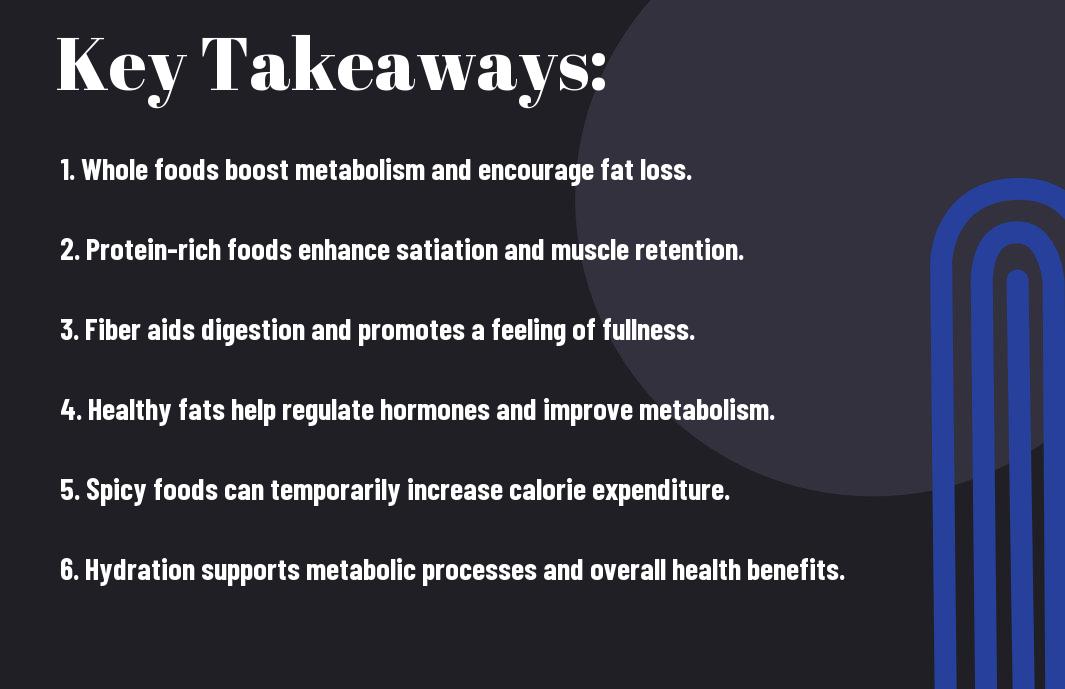
The Science of Fat Metabolism
Assuming you want to optimize your fat burning potential, it’s important to understand how your body metabolizes fat. Fat metabolism involves a series of biochemical processes that transform stored fats into energy. This process is influenced by various factors, including hormonal balance, the type of fuel available, and your dietary choices, ultimately determining how effectively your body can utilize fat as a source of energy.
How the Body Burns Fat
At the core of fat burning is the process of lipolysis, where triglycerides are broken down into glycerol and free fatty acids. Your body primarily relies on fat as an energy source during prolonged, low-intensity activities, which helps you maintain endurance while also supporting overall metabolic health. By understanding these mechanisms, you can tailor your diet and exercise routine to enhance your fat-burning capabilities.
Role of Macronutrients
Against common misconceptions, macronutrients play a significant role in your body’s fat-burning processes. Each macronutrient—carbohydrates, proteins, and fats—contributes differently to your metabolism and energy expenditure. Balancing your intake of these nutrients is vital for optimizing fat utilization and promoting muscle maintenance, as well as overall health.
Also, the right proportion of macronutrients can enhance your metabolic rate and improve your energy levels. While carbohydrates provide immediate energy, fats are the body’s primary long-term energy source. Proteins support muscle repair and growth, which can increase your resting metabolic rate. You can achieve effective fat metabolism by ensuring you consume a balanced mix of these macronutrients tailored to your individual needs and activity levels.
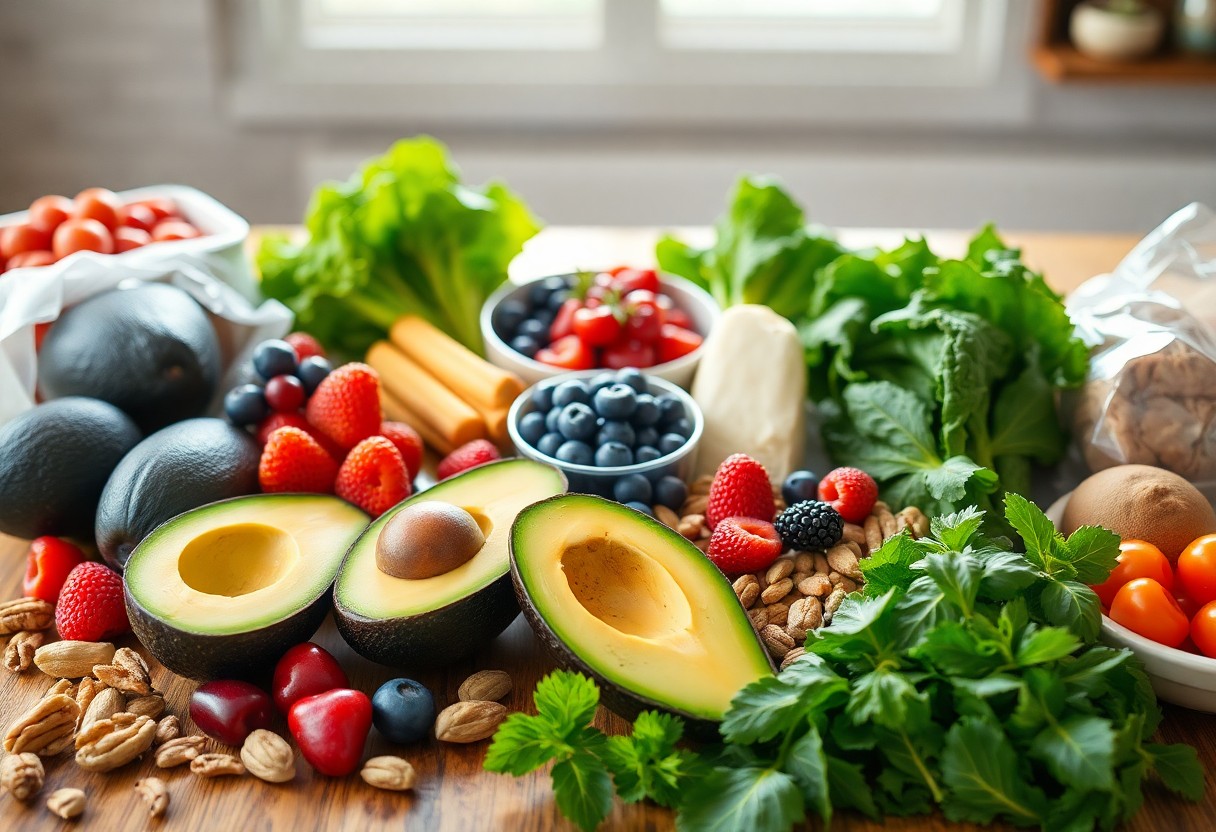
Top Fat Burning Foods
Now that you understand the importance of incorporating fat-burning foods into your diet, it’s time to explore the top options available. These foods not only boost your metabolism but also enhance overall health. By including these items in your meals, you can effectively support your fat-burning goals while enjoying delicious flavors. Let’s probe the specifics of what makes these foods so effective!
Protein Sources
Foods rich in protein, such as lean meats, fish, eggs, and legumes, are crucial to your fat-burning journey. They promote muscle growth and help increase your metabolic rate. By prioritizing protein in your meals, you create a thermogenic effect, meaning your body burns more calories while digesting and processing these foods. This can lead to improved fat loss and better body composition overall.
Healthy Fats
Across various food categories, healthy fats like avocados, nuts, and olive oil can actually aid in fat burning. Contrary to common belief, incorporating these fats supports your metabolism and helps you feel satiated. By including healthy fats, you allow your body to efficiently process energy while minimizing cravings that often lead to unhealthy snacking.
Consequently, healthy fats provide your body with crucial fatty acids and nutrients that are vital for optimal functioning. They help regulate hormones that control appetite and metabolism, which can contribute to a successful fat-burning process. You’ll find that enjoying healthy fats not only aids in fat loss but also supports heart health and overall well-being.
Fiber-Rich Foods
Across the spectrum of nutritious options, fiber-rich foods like vegetables, fruits, and whole grains play a significant role in burning fat. These foods help control blood sugar levels, keep you full longer, and promote healthy digestion. By incorporating fiber into your meals, you can enhance your body’s ability to burn fat more efficiently.
At the same time, fiber-rich foods improve your gut health, which is directly linked to weight management and fat loss. A healthy gut microbiome can help regulate metabolism and improve the absorption of nutrients. By ensuring you consume plenty of fiber, you ultimately support your fat-burning efforts while enjoying a variety of flavorful and nutritious meals.
Impact of Diet on Fat Loss
Not every food that claims to promote fat burning will lead to significant weight loss. The effectiveness of any diet ultimately lies in the balance of nutrients and your overall caloric intake. You can incorporate a variety of foods that may support fat loss, but without a comprehensive approach to your diet and create a sustainable eating pattern, you may not experience desired results.
Caloric Deficit vs. Surplus
An imperative aspect of weight management is understanding the balance between caloric deficit and surplus. If your goal is fat loss, you need to consume fewer calories than you burn, creating a caloric deficit. Conversely, consuming more calories than you expend leads to a caloric surplus, resulting in weight gain. Adjusting your caloric intake and being mindful of portion sizes can significantly impact your ability to lose fat effectively.
Timing and Meal Frequency
Impact on fat loss can also be influenced by when and how often you eat. Studies suggest that the timing of your meals may play a role in metabolism and appetite control. You might find that spreading your meals throughout the day helps maintain your energy levels and prevents overeating. However, individual preferences matter, and it’s important to discover what meal timing works best for your lifestyle and hunger signals.
It is worth noting that while meal timing and frequency can contribute to your overall diet strategy, they should not overshadow the importance of the quality of food choices. Eating regular meals can stabilize your blood sugar levels and reduce cravings, but it’s equally important to focus on nutrient-dense foods. This will ensure that you are nourishing your body, supporting muscle retention, and promoting an effective fat loss environment.
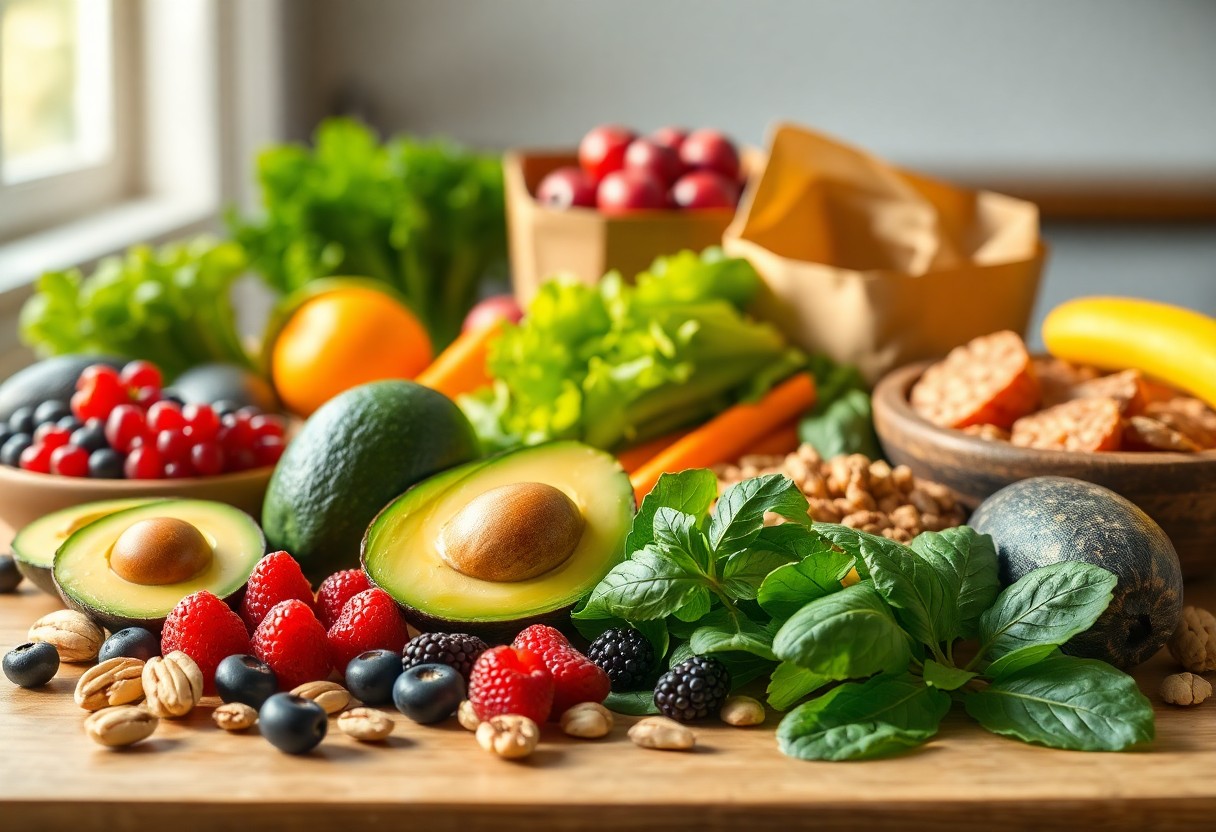
Lifestyle Factors Affecting Fat Burning
Keep in mind that several lifestyle factors significantly influence your fat-burning potential. Key elements include:
- Dietary choices
- Regular exercise
- Sufficient sleep
- Stress management
Thou must consider these components together for an effective fat-burning strategy. For more insights on this topic, check out 11 Healthy Foods That Help You Burn Fat.
Exercise and Physical Activity
An active lifestyle plays a vital role in facilitating fat burning. Engaging in regular physical activity not only helps you burn calories but also boosts your metabolism, enabling you to maintain a leaner body mass. Aim for a combination of aerobic and strength-training exercises to maximize your results.
Sleep and Stress Management
With adequate sleep and effective stress management, your body can function optimally, including its fat-burning processes. Poor sleep can disrupt hormonal balance, leading to increased cravings and weight gain, while chronic stress can elevate cortisol levels, further inhibiting fat loss.
For instance, prioritizing 7-9 hours of quality sleep can significantly enhance your metabolism and improve insulin sensitivity. Learning stress reduction techniques, such as meditation or deep-breathing exercises, can also help maintain hormonal balance. This holistic approach will ultimately support your goals for fat burning and overall wellness.
Myths and Facts About Fat Loss
To achieve effective fat loss, it’s imperative to distinguish between myths and facts. Many believe that certain foods, pills, or supplements can magically melt away fat. In reality, while some foods can support your metabolism, there is no miracle fix. For more insights, check out Do Fat Burners Melt Away Pounds? An Expert Weighs In. You need a balanced diet and consistent exercise to see real results.
Supplements and Their Effectiveness
Across various studies, supplements have shown mixed results in promoting fat loss. While some ingredients may provide minor benefits, none can replace the foundational elements of a healthy lifestyle, such as proper nutrition and regular physical activity. It’s vital to approach fat-burning supplements with caution and consult with a healthcare professional before use.
Fad Diets Debunked
By focusing on extreme dietary restrictions, fad diets often promise rapid weight loss but usually lead to unsustainable habits. These diets can deprive your body of imperative nutrients and do not promote long-term health. Following such trends may yield short-term results, but they typically result in weight regain. You should prioritize a well-rounded, sustainable approach to eating that suits your individual needs.
This approach fosters a healthier relationship with food and helps maintain a stable weight. Instead of falling for the latest diet craze, focus on balanced meals, portion control, and regular physical activity. Strategies like these not only support your weight loss goals but also contribute to your overall well-being. Embracing lasting lifestyle changes rather than temporary fixes is key to achieving and maintaining your desired weight.
Conclusion
As a reminder, understanding the scientific truth about fat-burning foods can empower you to make informed choices that support your weight management goals. While no single food can magically melt away fat, incorporating nutrient-dense options like lean proteins, healthy fats, and fiber-rich fruits and vegetables can enhance your metabolism and promote overall health. By focusing on a balanced diet and consistent exercise, you can effectively leverage the potential benefits of these foods in your journey toward a healthier lifestyle.
FAQ
Q: What are fat burning foods?
A: Fat burning foods are those that can potentially boost metabolism, enhance fat oxidation, and support weight management. These foods often include lean proteins, certain vegetables, whole grains, and healthy fats, which can assist the body in utilizing energy more efficiently and enhancing the overall metabolic process.
Q: Do all fat burning foods have the same effect on everyone?
A: The effect of fat burning foods can vary from person to person due to several factors such as genetics, overall diet, lifestyle, and metabolic health. While certain foods may promote fat oxidation in some individuals, they might not have the same effect in others. Individual dietary needs and responses are vital to consider when determining the best foods for fat burning.
Q: Can you lose weight by only consuming fat burning foods?
A: Relying solely on fat burning foods is not a sustainable or effective weight loss strategy. A balanced approach that includes a variety of nutrients along with regular physical activity is important. While certain foods can assist in weight loss efforts, a holistic approach that incorporates healthy eating patterns and lifestyle choices is more effective for long-term weight management.
Q: Are there specific spices that can enhance fat burning?
A: Yes, some spices are believed to have thermogenic properties that can support fat burning. For instance, spices like cayenne pepper, ginger, and cinnamon can boost metabolism and may help increase calorie expenditure. Incorporating these spices into meals can add flavor while potentially supporting fat loss.
Q: Can drinking water help in fat burning?
A: Yes, staying hydrated is important for various bodily functions, including metabolism. Drinking water can temporarily boost metabolic rate, especially when consumed before meals. Additionally, water can help curb hunger and reduce overall calorie intake, making it a supportive factor in weight management.
Q: Should I avoid carbohydrates if I want to burn fat?
A: Avoiding carbohydrates entirely is not necessary for fat burning. Instead, focusing on the quality and type of carbohydrates is more beneficial. Whole grains, fruits, and vegetables provide important nutrients and fiber that can assist in satiety and energy regulation. Moderation and balance are key to a successful diet for fat loss.
Q: What role does protein play in fat burning foods?
A: Protein plays a significant role in fat burning as it has a higher thermic effect than fats or carbohydrates, meaning the body burns more calories digesting protein. Including adequate protein in the diet can enhance satiety, preserving lean muscle mass during weight loss, and may help improve overall metabolic rate. Foods such as lean meats, legumes, and dairy products are excellent sources of protein.
